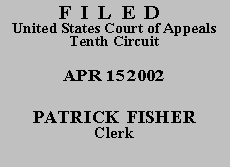

| UNITED STATES OF AMERICA,
Plaintiff - Appellee, v. JAIME VALETA-MENDOZA, Defendant - Appellant. |
|
A sixteen-level penalty increase is mandated if a defendant was deported after an aggravated felony conviction. U.S.S.G. § 2L1.2(b)(1)(A). Accordingly, sixteen levels were added to Valeta-Mendoza's offense level based on his conviction of the crime of aggravated assault with a deadly weapon. Under the plea agreement, his offense level was seventeen, with a criminal history score of four, for a guideline sentencing range of thirty-seven to forty-six months. Absent the plea agreement, Valeta-Mendoza's offense level was twenty-one, with a criminal history score of four, for a guideline sentencing range of fifty-seven to seventy-one months. The district court imposed a sentence of thirty-seven months.
On appeal, Valeta-Mendoza claims that § 2L1.2(b)(1)(A) violates the Uniformity Clause's requirement of uniform treatment for immigrants. See U.S. Const. art. 1, § 8, cl. 4 ("To establish a uniform Rule of Naturalization, and uniform Laws on the subject of Bankruptcies throughout the United States."). He acknowledges that application note 1 to § 2L1.2 refers to 8 U.S.C. § 1101(a)(43) for a definition of "aggravated felony," which includes "a crime of violence (as defined in section 16 of Title 18, but not including a purely political offense) for which the term of imprisonment [is] at least one year." 8 U.S.C. § 1101(a)(43)(F) (footnote omitted). He maintains that the requirement in § 1101(a)(43)(F) that an alien have been imprisoned for one year could result in different federal sentences, because the definition of prior aggravated felony includes state-court convictions and different states could impose different penalties for similar criminal conduct. Therefore, according to Valeta-Mendoza, the same criminal conduct could result in an increased federal sentence for one alien, but not for another, depending on the state in which the alien committed the underlying crime. He argues that the possibility of different sentences for the same conduct is unconstitutional.
Valeta-Mendoza's guilty plea does not prevent our review of his sentencing challenge, even though he received a sentence under the stipulated guideline range, because he argues that his sentence violates the United States Constitution. See United States v. Sanchez, 146 F.3d 796, 797 (10th Cir. 1998) (stating appellate jurisdiction over a sentence appeal may lie where defendant claims the sentence violated law or resulted from an incorrect application of sentencing guidelines). His failure to raise his challenge to the interpretation or application of the sentencing guidelines in the district court would normally preclude appellate review. United States v. Gilkey, 118 F.3d 702, 704 (10th Cir. 1997). "However, we recognize a narrow exception and review a legal question involving application of the sentencing guidelines for plain error." United States v. Ciapponi, 77 F.3d 1247, 1252 (10th Cir. 1996). "In order to evoke this exception, the error must be particularly egregious, as well as obvious and substantial, and we will apply it solely in those circumstances in which a miscarriage of justice would otherwise result." United States v. Tisdale, 248 F.3d 964, 975 (10th Cir. 2001) (quotations omitted), cert. denied, 122 S. Ct. 1120 (2002). "An error is substantial if it seriously affect[s] the fairness, integrity, or public reputation of judicial proceedings." United States v. Massey, 48 F.3d 1560, 1568 (10th Cir. 1995) (alteration in original) (quotations omitted). To be plain, an error must be contrary to well-settled law. United States v. Whitney, 229 F.3d 1296, 1309 (10th Cir. 2000). We apply the plain error rule less rigidly where the claimed error is of constitutional magnitude. Massey, 48 F.3d at 1568.
Valeta-Mendoza maintains that the district court committed plain error by increasing his sentence based on his prior aggravated felony conviction pursuant to § 2L1.2. The error, he claims, was in failing to consider that aliens could suffer different immigration consequences depending on the state law under which the underlying conviction was entered.
Valeta-Mendoza has not provided sufficient argument or legal authority to show that the district court's sentencing decision was erroneous, let alone that any error was both obvious and substantial. This circuit has regularly applied § 2L1.2(b)(1)(A) to alien-defendants. See, e.g., United States v. Vasquez-Flores, 265 F.3d 1122, 112325 (10th Cir. 2001), cert. denied, 70 U.S.L.W. 3534 (U.S. 2002); United States v. Frias-Trujillo, 9 F.3d 875, 87678 (10th Cir. 1993). Further, Valeta-Mendoza has cited no federal case, and we have found none, applying the Uniformity Clause to § 2L1.2(b)(1)(A), or indeed, to any sentencing scheme. "[T]here is no well-settled law establishing the court made a clear and obvious error" in increasing Valeta-Mendoza's sentence based on his state conviction for aggravated assault with a deadly weapon. Whitney, 229 F.3d at 1309. Accordingly, Valeta-Mendoza cannot establish plain error. Id. at 1310.(2)
The judgment of the district court is AFFIRMED. The mandate shall issue forthwith.
ENTERED FOR THE COURT
Circuit Judge
*. After examining the briefs and appellate record, this panel has determined unanimously to grant the parties' request for a decision on the briefs without oral argument. See Fed. R. App. P. 34(f); 10th Cir. R. 34.1(G). The case is therefore ordered submitted without oral argument. This order and judgment is not binding precedent, except under the doctrines of law of the case, res judicata, and collateral estoppel. The Court generally disfavors the citation of orders and judgments; nevertheless, an order and judgment may be cited under the terms and conditions of 10th Cir. R. 36.3.
1. Section 2L1.2(b)(1)(A) was amended effective November 1, 2001, after Valeta-Mendoza was sentenced. All references to § 2L1.2 are to the version in effect at the time Valeta-Mendoza was sentenced.
2. We express no opinion on whether the Uniformity Clause could ever apply to federal sentencing issues.